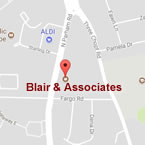When It Comes To Your Estate Plan
February 2016

Guaranteed … no more so than any of the rest of us! And that brings us to the topic of Estate Planning to deal with the unknown future, provide peace-of-mind for your family and create an orderly transition of assets in the event of death or disability. Additionally, as accountants, we seek to assist with all of the above in the most tax-favored ways possible.
A quick statistic: Approximately 55 percent of American adults do not have a will or other estate plan in place, according to LexisNexis.
That said, in this article we’ll take a look at Estate Planning from the perspectives of creating a plan (Preventive Maintenance) and periodic fine-tuning (Upkeep).

Preventive Maintenance
The old adage, “Hope for the best, and Plan for the worst”, comes to mind. Without that sounding more ominous than necessary, in the absence of adequate planning, disability due to illness or injury can multiply otherwise avoidable legal and financial challenges. For example, one mistaken belief by many married couples is that financial and health care decisions can be made for one another in the event either spouse becomes disabled. Not necessarily true!
The able-bodied spouse may not automatically have access to the disabled spouse’s medical information and finances.
Likewise, in the event of death, there should be a carefully developed roadmap for the distribution of the deceased’s assets, minimize estate and transfer taxes, specify care for minor children and minimize or eliminate preventable conflicts among family and heirs.
A properly crafted Estate Plan will serve to protect, preserve and manage your estate in the event of death or disability.
Note: Your last name does not have to be Gates, Bezos or Zuckerberg to be a candidate for an estate plan. Virtually anyone 18 years old, married or single, should arrange for a trusted representative to make personal, health care and financial decisions in the event of incapacity to do so or death.
DIY or …? Estate Planning is not a do-it-yourself project. Your best course of action is to seek help from experienced experts that specialize in estate planning matters. Once chosen, your advisors will determine the issues to be addressed and the appropriate documentation required to ensure instructions consistent with your desires.
Paper, Paper, Paper: Among the documents your advisors may recommend are a Will; Durable Power of Attorney for Health Care Decisions; Living Will; Durable Power of Attorney for Financial Matters, one or more Trusts; and a HIPAA Authorization. Estate plans do not lend themselves to one-size-fits-all, so the specifics of yours will be determined based on your needs, desires and estate valuations.
If the above list appears daunting to you, that just underscores the need for competent, experienced estate planning advice. As you may anticipate, with so many possible combinations of documents and provisions of each, there is the potential for even simple mistakes to wreak havoc on the validity of your Estate Plan.
Your attorney and accountant will likely collaborate to ensure tax and other financial issues are properly addressed.
Competent, Capable People: Another key element of your plan is your selection of decision makers, i.e. the executors, trustees, agents and guardians who will shoulder significant responsibilities on your behalf. Choices should never be made simply because an individual is a family member or close friend. Your selection should reflect the individual’s capabilities and willingness to fulfill the required duties of the role he or she is expected to play. Alternatively, you may appoint an entity such as a bank or trust company.

Upkeep & Tune-Ups
In one sense, executing your Estate Plan documents is a bit like buying a car or purchasing a home … meaning there are some ongoing actions that will need to be taken periodically to ensure peak performance. Estate plans evolve as changes in your financial circumstances, family status and health issues surface.
As a matter of fact, the first thing you should undertake is to talk to all parties that will be affected by your plan. That means those who will act as decision-makers, care-givers and beneficiaries. By doing so you will short-cut any anger or resentment and clarify your intent and motivation in developing the plan.
Certainly, your decision-makers need to know your plans, their roles, who your estate planning advisors are and where you store the governing documents. To streamline their abilities to be of service, compile a list of:
• Bank accounts
• Brokerage accounts
• Life insurance policies
• Disability & Long Term Care policies
• Safe deposit box
• Real Estate
• Annuities
• IRAs, Retirement Plans
• Business interests
• Tangible Property
Storage may be as simple as a lock box or safe deposit box. Alternatively, there are online services that will store your documents until you, your executors or trustees need access.
There are some obvious life developments that will trigger an upkeep or tune-up response. For example:
• Change in marital status – marriage, divorce or death
• Birth or adoption of a child or grandchild
• Death of a family member or other beneficiary
• Death or resignation of a decision-maker/caregiver
• Material changes to estate values
• Change in residence may involve change of jurisdiction
• Altered work status, e.g. retirement, disability, unemployed
• Changes in federal and/or state laws re: income, estate, gift and inheritance taxes
So, there is plenty to consider, but also plenty of help available from a capable estate planning team . Additionally, we at Blair + Assoc stand ready to serve you and your advisors in offering consultation as well as filing the following documents:
• Inventories
• Court accountings
• Final income tax returns for the deceased
• Estate tax returns
• Trust income tax returns.
Of course, all of our work is with an eye to maximize your estate value and minimize your tax bite. One last thought: we at Blair + Assoc work with a number of skilled estate planning professionals. If we can help with a referral … just ask.

